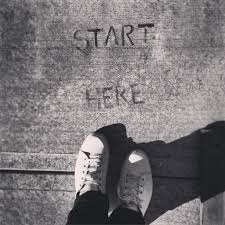Are we at least willing to leave it all? The Hebrew tale of an invisible God calling a young Abram out of his home to a new land is such a perfect story of faith ventures. Even non-religious people can relate at least to the risk factor the unknown. “Go from your country, your people, and your father’s house” (Gen. 12.1). Gets right into it. Go. It’s the heart of all risk. Go. Leave what you know. And for what? In this case, “the land I will show you.” A future unknown goal is at hand.
That is the very heart of entrepreneurial risk: leaving what you know for some possible better future. That is really at the heart of the Scriptures throughout. Ironic that now religious people are seen as sterile, lethargic, and even lifeless.
Far from it in the beginning. The “father of faith” indeed shows a very different kind of religious model. It’s all about one’s willingness to leave it all for a promise of something better (a place with less space between). Are you willing to do that?
Some will argue the job of a great leader is to describe and inspire toward a vision of a preferred future. Their job, at least partly, is to understand and articulate where all this is leading. They are to help us know why it is worth our sacrifice.
That is precisely where we get the term visionary. Of course in today’s world that term is used almost exclusively for people working toward scientific and technological breakthroughs. Their “vision” is quite palatable and “usable” by the public.
Somehow all those breakthroughs make our lives “better,” or at least more comfortable. They are not visions of a preferred future exactly, they are visions of a preferred present. What can we do to make life better for humans now.
It is an interesting change. And most of the breakthroughs don’t necessarily lead us to be “better” humans doing “better” things, they lead us in most cases to greater comfort. That’s of course where “progress” and traditional vision fork in the road.
The goal of a true visionary is not to make life more comfortable for people, especially as we talk about artists. Their job in many ways is to make people less comfortable, or more irritable in their given comforts, to even “afflict their consciences.”
Sounds almost gloomy and downright mean, certainly a buzzkill. It also sounds like the “true” nature of real art is serious and confounding. While not the only purpose of the creative arts it may be one of most important.
“Better” generally involves growing, which generally does not come easy. Creative people have to keep pushing at the market to adjust expectations to include things that are good for them. That’s the heart of today’s creative entrepreneurs.
How do we sustain-ably bring good things to people? How do we take visions of a truly preferred future and get them into the conscious of the people? How do we reduce the space between people, natural resources, and the hope to carry on?






